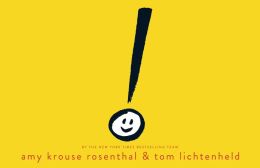I probably should've taken a picture. Let's face it, there are important events in our lives that should be documented with photographs: our first steps, our first lost tooth, our first car, our first paycheck --- and our first edcamp.
On Friday night I was reading posts for
The Slice of Life Challenge and following conversations on Twitter when I saw a tweet about
Ed Camp Columbus. A friend had told me that #edcampcbus was coming up, but I hadn't really been able to find any information. I went back through the tweets of those I thought might be promoting the event, and still couldn't find it. So on Friday night at nearly 10 o'clock I notice a tweet about the event which was to be held Saturday morning - yes, the very next morning - at 9 a.m.. My calendar happened to be free so at nearly midnight I registered for the event. Crazy, huh?!
What is #edcamp?
For those of you unfamiliar with #edcamps, they take place in cities across the United States. When a place for the event is found, and a date is chosen, everyone gathers to learn one from another. EdCamps really have no set agenda, participants arrive and begin listing what they'd like to talk about on
the board. Sessions are then formed for those wanting to have common conversations around a topic and rooms are assigned. These aren't really formal presentations like we often experience at professional conferences, but more informal conversations around a topic. Sessions seemed to always include those in the know on a topic and those wanting to know more about a topic.
Edcamps are FREE professional development so what did I have to lose. On Saturday morning I got up, grabbed a Starbucks, and headed to the other side of Columbus. I wasn't sure what I was in for, but I was quite sure I wanted to find out more about EdCamps.
My day was full of learning:
Using Evernote to Capture Student Learning: In this session a group of us gathered to talk about Evernote. As you know, I am a
huge fan of EN. We shared some of the ways we're using EN to follow the learners in our classrooms. We talked a bit about applications that work with EN. I discovered that you can share a notebook and collaborate with it if one person has a premium account. I'm planning to give that a try on Monday. I shared this resource for
getting started with Evernote.
Data and Assessment and The Need for Translation: In this session there was a wide range of participants: teachers, administrators, instructional coaches, and technology coordinators. This group discussed the need for being more vocal about the way our students are being measured. The question was asked, "Why is there a need to quantify qualitative information?" I couldn't help but wonder why we are using old ways of measurement (standardized tests) for new world learning.
Developing Student Ownership: In this session several teachers shared how they have set up units of study in which students work through at their own pace. They explained the benefits, as they saw them --- and the challenges they've faced. This session had me really working to define how I view student ownership. What are the parts of the learning process should students own? How do we set up our environments so students can own the learning? What is our role in student ownership?
Rockin' Around the (Google) Docs: Wow! I didn't know you could learn so much in a 50 minute session. Danielle shared some ways to use Google docs in our classrooms. She shared
Doctopus,
Flubaroo, and other ways to effectively research, collaborate and create using Google Docs. I learned ways to research, search for images and annotate right within the doc. Oh, the things we don't know.
Community
Each session was an interesting and thoughtful conversation. What struck me the most was the community of learners created in that moment. Some had come because they had heard about the event on Twitter, some had come because they heard about the event in their districts, but all came to participate, learn, and share their knowledge. Though I took away much from each session, I also gained a few more connections, some time to talk with teachers I know from other districts, and a few more friends to follow on Twitter.
To top it all off,
I won a free year's
subscription to Simple K12. Not bad for a day's time. Thanks to Gahanna schools for the use of their beautiful Clark Hall facility,
Dwight Carter,
Toby Fischer, and the many others who helped make the day a success. I can't wait until #edcampcbus 2014!
Tweetdoc of #edcampcbus 2013





